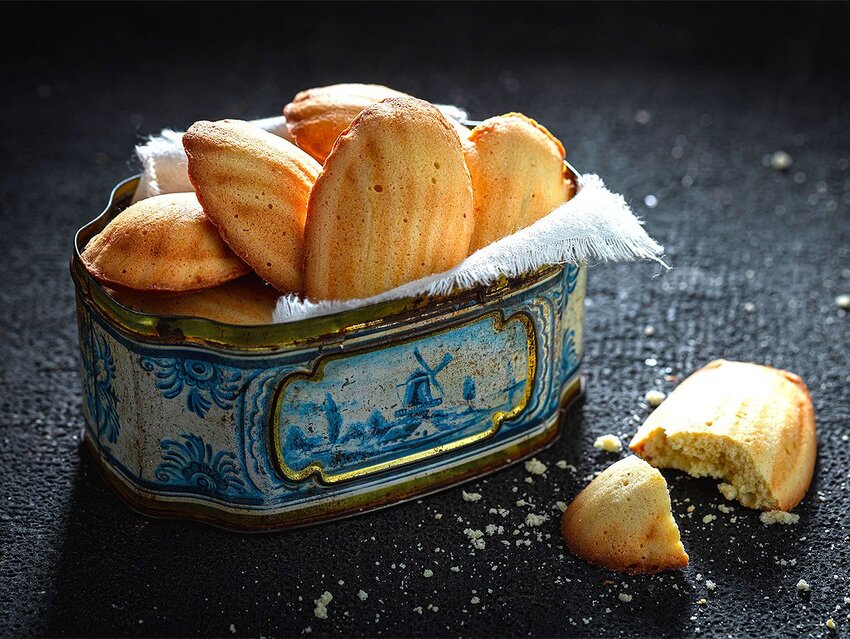As confections go, madeleines are fairly simple — the small cakes, French in origin, consist of little more than butter, eggs, sugar, vanilla extract, salt, and flour. But the word “madeleine” picked up a secondary, more figurative, definition in the early 20th century, as something that brings back a memory or a source of nostalgia or evocative memories.
In Praise of Proust
As literary devices, madeleines are among the most poignant and enduring in the canon. That’s thanks to French author Marcel Proust, whose epic 1913 novel Remembrance of Things Past (also translated as In Search of Lost Time) begins with its unnamed narrator eating “one of those squat, plump little cakes called ‘petites madeleines,’ which look as though they had been moulded in the fluted valve of a scallop shell.” After taking a bite of one dunked in tea, the man is so overwhelmed by memories of his childhood that he spends the rest of the seven-volume novel ruminating on them.
Smell is the sense most closely associated with memory, and the sensation of aroma and taste are inextricably linked. Whether it’s the scent of freshly cut grass bringing you back to childhood days spent playing at the park, or a bite of apple pie transporting you to your grandmother’s kitchen, the olfactory nerve is incredibly powerful. It can elicit a flashback so strong, it doesn’t feel like a memory at all. This wasn’t exactly a scientific revelation on the part of Proust, but the vivid, evocative manner in which he wrote about it gave a name to an elusive experience so many have had.
Same Recipe, New Experience
Just consider a sentence like this: “No sooner had the warm liquid mixed with the crumbs touched my palate than a shudder ran through me and I stopped, intent upon the extraordinary thing that was happening to me.” Now referred to as both the madeleine effect and the Proust effect, the literary device describes not just memory, but an involuntary recollection surfaced by an external stimulus. This sense of “madeleine” — that of a small thing that summons a powerful memory — came into use around the early 1920s. The author’s countrymen refer to a smell or taste that triggers such an experience as a madeleine de Proust, and experiences of this sort have given rise to an adjective, as well: Proustian.
This Proustian phenomenon now extends far beyond food, having been referenced in everything from The Sopranos (Tony’s therapist describing the madeleine effect) and a Haruki Murakami novel (“Still reading Proust?”) to Monty Python’s Flying Circus (The All-England Summarize Proust Competition) and a classic anime series (in which a teen protagonist sobs over a madeleine). Few literary devices this side of Chekhov’s gun have ever been more influential.
The Tartine Effect?
For all that, the madeleine itself was almost an afterthought. The first draft of Proust’s novel used an entirely different treat: the humble tartine. Sometimes toasted and sometimes not, the slice of bread spread with butter or jam was replaced with the admittedly more evocative madeleine by Proust’s editor. In a way, that seems fitting. The actual treat — or smell, or sporting event — that triggers a decades-old memory is less important than the experience itself, regardless of the word used.
Featured image credit: Shaiith/ iStock

